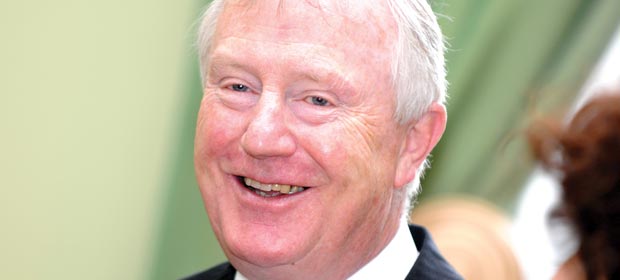Sometimes, in the cold light of day, what earlier appeared worthwhile can take on a quite different appearance, writes Denis Doherty.

The Prime Time exposure of the mistreatment of vulnerable adults in their home at Áras Attracta in Swinford was shocking. In the public debate that followed, there appeared to be widespread support for the introduction of hidden cameras and undercover agents in care settings, as a means of protecting vulnerable service users from the type of abuse we witnessed in one bungalow at Áras Attracta.
The prospect of that happening conjures up, in my mind, a latter day version of what Lord Denning once described as ‘an appalling vista’. In this case the appalling vista would take the form of a culture based on fear, suspicion, distrust and would possibly breach the human rights of both staff and service users.
The vast majority of our healthcare staff are caring, compassionate and professional in their work and in their relationships with those they care for. Their commitment ought to be valued, not undermined.
Finding myself holding what appeared to be a minority view, I turned to the report of the Mid Staffordshire Trust Inquiry to check what it had to say on the subject. Patients in Staffordshire were subjected to almost indescribable neglect and abuse over a lengthy period of time. Two inquiries, both chaired by Robert Francis Q.C., were conducted. In his report, Francis graphically describes what he found and is forthright and unequivocal in his recommendations.
“The choice is stark. We opt for what Francis describes as ‘a caring culture’ or we choose one built on fear, suspicion and endemic distrust.”
He found that –‘There was a lack of care, compassion, humanity and leadership. The most basic standards of care were not observed and fundamental rights to dignity were not respected’. Sounds familiar, doesn’t it?
He went on to describe what he saw as necessary. ‘We need a patient centred culture, no tolerance of non compliance with fundamental standards, openness and transparency, candour to patients, strong cultural leadership, compassionate nursing and accurate information about services’ It’s not difficult to make the case that we need to adopt a similar approach.
The Mid Staffordshire Inquiry Report contains 290 recommendations. The use of hidden cameras and undercover agents in care settings do not receive a single mention. The choice is stark. We opt for what Francis describes as ‘a caring culture’ or we choose one built on fear, suspicion and endemic distrust.
My sense is that what appeared to be widespread support for the second choice owed much to the sense of revulsion many who viewed the Prime Time programme felt and to their desire, in the immediate aftermath of the programme, to take whatever steps seemed capable of preventing a repeat of that experience. Sometimes, in the cold light of day, what earlier appeared worthwhile can take on a quite different appearance.
We have a well-deserved reputation for being a caring and generous people and, even though that reputation has been sullied by too many examples of uncaring behavior in recent years, I believe the vast majority of Irish people would opt for the ‘caring model’ favoured by Francis.
If I am correct in that assumption, it would not be difficult to get from where we’re currently at to where we need to get to.
The ‘Francis Report’ deliberately stays away from the detail of how his recommendations should be implemented and, therefore, lends itself to being validated and applied in other healthcare systems. It appears to me that the philosophy of care, the codes of practice, the service standards and the shared culture proposed by Francis are as valid here as they are in the NHS. So, why reinvent that wheel? Francis states very emphatically that culture change is what is required, rather than structural or organisational change, to bring about all that he recommends. Another reason to believe that what he recommends could be validated and applied in our system.
Minister of State, Kathleen Lynch TD, was honest in admitting she cannot be sure there aren’t other Bungalow 3, Áras Attracta type situations she in not aware of. Francis provided the answer to how that worry can be dealt with when he stated, in speaking about the NHS, ‘We need a patient centred culture, no tolerance of non compliance with fundamental standards, openness and transparency, candour to patients, strong cultural leadership, compassionate nursing and accurate information about services.’
We could begin by taking Francis’ advice. Harvest the ripe, low hanging fruit by collecting together the very many examples of existing good practice that are compatible with the Francis approach, distill it and promote the sharing of it. Then, using the HeBE method of project management, accelerate the developments required. We might just be amazed by how much can be accomplished in 2015!
Encouragingly, the Department of Health took an important initiative last year in commissioning the development of a code of conduct for boards, senior executives and employees of the HSE and other health service providers funded by the HSE. I understand the work involved is nearing completion and is likely to be published soon. The type of code of conduct commissioned appears compatible with what is recommended in the Francis Report. Hopefully, it will be adopted, implemented speedily and lead to further shared-culture work being undertaken.

